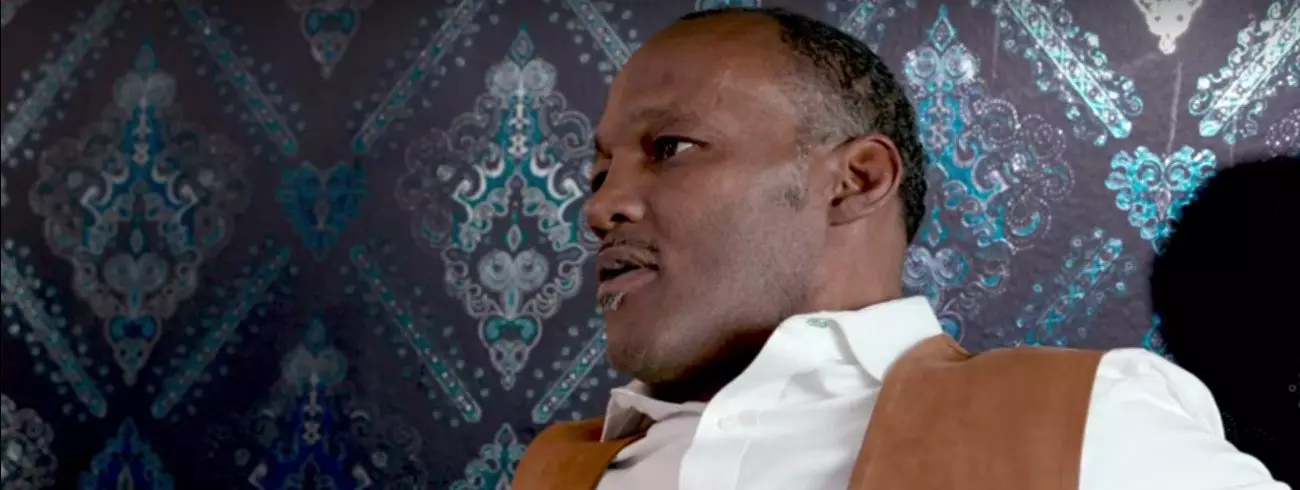Donald Curry, a name that once echoed through the boxing rings with fervor, now stands as a poignant reminder of the toll that sports can take on an athlete’s mental health. At 63, this former welterweight and light-middleweight champion is no stranger to hardship, having recently faced a formidable new opponent in his life: Traumatic Encephalopathy Syndrome (TES). Once lauded as “The next Sugar Ray Leonard,” Curry was celebrated not only for his prowess in the ring but also for the joy and excitement he brought to fans and the sport itself. However, the devastating realities of long-term brain injury have overshadowed his illustrious achievements, shifting the narrative from glory to desperate need for support.
The announcement of Curry’s diagnosis came from his son, Donovan, who utilized social media as a platform to reach out for help. This transformation from a revered sports icon to a figure in need of care is heart-wrenching for many who have admired Curry’s talents over the years. Donovan’s plea reveals the struggles they face, including impairments in judgment, reasoning, memory, and behavior that often accompany TES. The fight here is not just for physical recovery but also for dignity and support during a profoundly challenging era in Curry’s life. It poses an important question: how can society, especially the sports community, step up to assist those who have given so much?
In his message, Donovan highlights the crucial role of caregivers who had helped Donald navigate his disorder. The former trainer, Paul Reyes, was a pivotal figure in Curry’s care until his recent passing. This reflection illustrates an integral aspect of the fight against mental health issues: the community that rallies around those in need. The heartache of losing such a support figure compounds the family’s struggles as they search for new resources. As they explore various options for specialized facilities, it is vital to remember that athletes often return to the ring after their glory days, but they may be left alone to fend for themselves when the cheers fade. The current situation emphasizes the collective responsibility we share in taking care of our champions.
Donovan Curry’s direct appeal hints at a larger societal issue—an urgent need for mental health facilities that cater specifically to those suffering from conditions like TES. His call for assistance emphasizes the lack of easily accessible, cost-effective solutions for individuals experiencing similar crises. Curry’s situation invites a reconsideration of how sports organizations, fans, and communities engage with their heroes once the spotlight dims. A robust support system, including potential fundraisers, could act as a lifeline for athletes returning from the battlegrounds of professional sports, where brain injuries are often overlooked until infringement manifests.
For many, Donald Curry represents more than just a name in the boxing annals; he symbolizes resilience and the spirit of the sport. As a celebrated figure who once captivated audiences worldwide, it is essential to remember the legacy he has built—not just through titles and accolades, but through the emotional connection he fostered with fans. The outpouring of support for Curry shows that while he may be facing one of his toughest battles, the respect and fondness from the boxing community remain strong. Such admiration must translate into actionable support, assisting him in finding the necessary care that recognizes the dignity and value of his life.
As we reflect on Donald Curry’s circumstance, it is imperative to approach the root of mental health issues in sports. His diagnosis has opened the door to discussions around athlete welfare, emphasizing the urgency for improved facilities and funding for mental health care tailored specifically for athletes. The transition from a celebrated career to a state of vulnerability highlights a societal gap that must be closed. Supporting Donald Curry is not just about paying homage to a legendary boxer; it’s about ensuring that every sports figure receives the help they need, ultimately reinstating their humanity over their victor roles. As a community, we owe it to Curry and others like him to act decisively—transforming our admiration into meaningful assistance that honors their legacies.


Leave a Reply